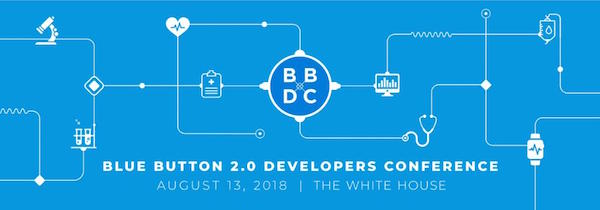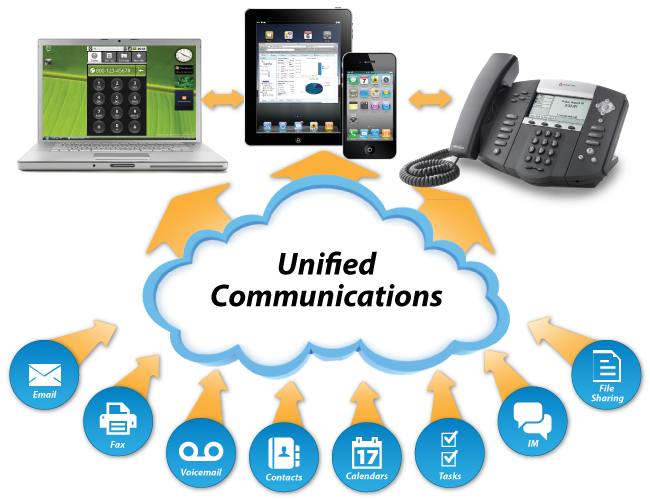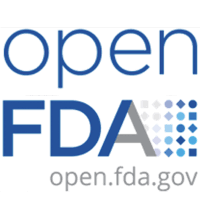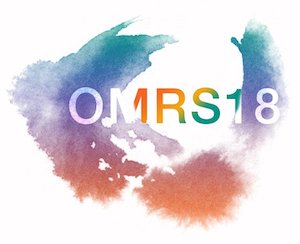The Future Is Open
Tech Giants Back White House Open Source Health IT Initiative
 Six major technology companies have thrown their support behind the White House's initiative to use an open source, collaborative, approach to accelerate the progress of health data standards and interoperability and to give patients access and control of their medical records. The companies; Amazon, Google, IBM, Microsoft, Oracle, and Salesforce signed a pledge that was presented at the White House's Blue Button 2.0 developer conference. The conference took place last Monday. Dean Garfield, president and CEO of the Information Technology Industry Council (ITI) told the press that “As transformative technologies like cloud computing and artificial intelligence continue to advance, it is important that we work towards creating partnerships that embrace open standards and interoperability.
Six major technology companies have thrown their support behind the White House's initiative to use an open source, collaborative, approach to accelerate the progress of health data standards and interoperability and to give patients access and control of their medical records. The companies; Amazon, Google, IBM, Microsoft, Oracle, and Salesforce signed a pledge that was presented at the White House's Blue Button 2.0 developer conference. The conference took place last Monday. Dean Garfield, president and CEO of the Information Technology Industry Council (ITI) told the press that “As transformative technologies like cloud computing and artificial intelligence continue to advance, it is important that we work towards creating partnerships that embrace open standards and interoperability.
- Login to post comments
Blue Button Developers to Meet at the White House Today - Verma and Liddell to Open the Conference
 More than 700 app developers and eHealth groups and organizations have registed to meet today at the White House for the first Blue Button 2.0 developer conference. The "The inaugural Blue Button 2.0 Developer Conference will bring together application developers in the technical community to help build and develop new tools to help patients understand their health data,” said Seema Verma, Administrator of the Centers for Medicare and Medicaid Services (CMS) in a statement.
More than 700 app developers and eHealth groups and organizations have registed to meet today at the White House for the first Blue Button 2.0 developer conference. The "The inaugural Blue Button 2.0 Developer Conference will bring together application developers in the technical community to help build and develop new tools to help patients understand their health data,” said Seema Verma, Administrator of the Centers for Medicare and Medicaid Services (CMS) in a statement.
- Login to post comments
Is Cloud Faxing the Solution to the Health IT Usability and Interoperability Crisis?
 The Healthcare industry is in profound crisis as the HITECH Act of 2009 led medical facilities across the United States to spend in excess of $3 trillion on the purchase and implementation of expensive electronic health records (EHRs) under the Meaningful Use program. Yet, the most fundamental goals of electronic records Nirvana that were promised have not been achieved. For multiple reasons, EHRs have turned out to lack usability and be non-interoperable. In fact, most monopoly EHR vendors are engaged in what is commonly called “data blocking.” In most cases physicians are unable to obtain medical records for the patients they are seeing and patients have a hard time getting a hold of their own medical records. That means that the medical records are not available at the most important moment, the caregiver/patient encounter, and are not available to the patients themselves and their family members.
The Healthcare industry is in profound crisis as the HITECH Act of 2009 led medical facilities across the United States to spend in excess of $3 trillion on the purchase and implementation of expensive electronic health records (EHRs) under the Meaningful Use program. Yet, the most fundamental goals of electronic records Nirvana that were promised have not been achieved. For multiple reasons, EHRs have turned out to lack usability and be non-interoperable. In fact, most monopoly EHR vendors are engaged in what is commonly called “data blocking.” In most cases physicians are unable to obtain medical records for the patients they are seeing and patients have a hard time getting a hold of their own medical records. That means that the medical records are not available at the most important moment, the caregiver/patient encounter, and are not available to the patients themselves and their family members.
- Login to post comments
FDA Issues RFQ for Large Scale EHR Study - Wants to Leverage VA's Open Source VistA EHR and Database for Research
 The Food and Drug Administration (FDA) yesterday issued a Request for Quotation (RFQ) for a large-scale electronic health record (EHR) system. This RFQ is very important as the objective is to develop a platform to support a critical project by the FDA's Division of Bioinformatics and Biostatistics (DBB) "to conduct research to assess the safety and surveillance of FDA regulated products through the FDA adverse event reporting systems..." Adverse drug reactions are one of the leading causes of death in the US, thus finding which drugs cause negative interactions is of vital importance. The project requires "use of the large electronic medical record (EMR) system..." The project is going to leverage the largest, most comprehensive, and clinically relevant medical records database, that of the US Department of Veterans Affairs (VA).
The Food and Drug Administration (FDA) yesterday issued a Request for Quotation (RFQ) for a large-scale electronic health record (EHR) system. This RFQ is very important as the objective is to develop a platform to support a critical project by the FDA's Division of Bioinformatics and Biostatistics (DBB) "to conduct research to assess the safety and surveillance of FDA regulated products through the FDA adverse event reporting systems..." Adverse drug reactions are one of the leading causes of death in the US, thus finding which drugs cause negative interactions is of vital importance. The project requires "use of the large electronic medical record (EMR) system..." The project is going to leverage the largest, most comprehensive, and clinically relevant medical records database, that of the US Department of Veterans Affairs (VA).
- Login to post comments
Application Deadline to Host OpenMRS 2018 Annual Implementers Meet Coming Up
 The deadline to apply to host the 2018 International OpenMRS Implementers conference is coming up on April 30 [updated]. Nations that want to host the meeting need to answer the detailed questionnaire by that time. For those Open Health News readers who have missed one of the greatest health IT stories of the decade, the Government of Uganda hosted the 2016 OpenMRS meeting in their capital city of Kampala. The conference was such an extraordinary success that a large number of other national governments volunteered to host the 2017 Implementer's conference. There are currently close to 40 countries around the world where OpenMRS is being implemented throughout the county in large-scale deployments.
The deadline to apply to host the 2018 International OpenMRS Implementers conference is coming up on April 30 [updated]. Nations that want to host the meeting need to answer the detailed questionnaire by that time. For those Open Health News readers who have missed one of the greatest health IT stories of the decade, the Government of Uganda hosted the 2016 OpenMRS meeting in their capital city of Kampala. The conference was such an extraordinary success that a large number of other national governments volunteered to host the 2017 Implementer's conference. There are currently close to 40 countries around the world where OpenMRS is being implemented throughout the county in large-scale deployments.
- Login to post comments
HIMSS18: Key Exhibitor Booths for Open Solutions, Collaboration, and Interoperability
 The annual gargantuan HIMSS conference is back at Las Vegas with over 40,000 participants, over a thousand exhibitors, and more than 600 presentations. As we saw last year in Orlando, more than half of the conference presentations are focused on applications based on open source such as FHIR and Blockchain, and a great emphasis on open solutions for interoperability. With so many presentations and exhibits, it is impossible to provide a full overview. Below are a few of some of the most interesting exhibits of open solutions this year.
The annual gargantuan HIMSS conference is back at Las Vegas with over 40,000 participants, over a thousand exhibitors, and more than 600 presentations. As we saw last year in Orlando, more than half of the conference presentations are focused on applications based on open source such as FHIR and Blockchain, and a great emphasis on open solutions for interoperability. With so many presentations and exhibits, it is impossible to provide a full overview. Below are a few of some of the most interesting exhibits of open solutions this year.
- Login to post comments
OSEHRA To Hold Innovation Webinar on Open Source Clinical Quality Tools
 OSEHRA is going to be holding a special one-hour Innovation Webinar tomorrow as part of the National Health IT Week. The focus will be on open source applications and tools that are gaining traction for clinical quality measures. Well known and very mature is popHealth. The webinar participants will discuss the latest upgrades in version 5.0 of the software. They will also present a new entrant into the field. That would be the Cedar project, an open source tool for testing the strength of Electronic Clinical Quality Measure (eCQM) collection systems that receive Quality Reporting Document Architecture (QRDA) files.
OSEHRA is going to be holding a special one-hour Innovation Webinar tomorrow as part of the National Health IT Week. The focus will be on open source applications and tools that are gaining traction for clinical quality measures. Well known and very mature is popHealth. The webinar participants will discuss the latest upgrades in version 5.0 of the software. They will also present a new entrant into the field. That would be the Cedar project, an open source tool for testing the strength of Electronic Clinical Quality Measure (eCQM) collection systems that receive Quality Reporting Document Architecture (QRDA) files.
- Login to post comments
Hurricanes Harvey and Irma Draw the Line - Time for the US to Embrace Open Source Emergency and Disaster Response
 For nearly 20 years now the global open source community and applications have been a keystone to disaster relief efforts around the world. The enormous number of disaster relief applications and knowledge that has been developed through all these years, should, and needs to be leveraged in the current crisis. For that reason, Open Health News is starting a series of articles to highlight some of the most important solutions. A substantial portion the open source applications for emergency and disaster response that exist are actually already on the news website in the form of articles and resource pages.
For nearly 20 years now the global open source community and applications have been a keystone to disaster relief efforts around the world. The enormous number of disaster relief applications and knowledge that has been developed through all these years, should, and needs to be leveraged in the current crisis. For that reason, Open Health News is starting a series of articles to highlight some of the most important solutions. A substantial portion the open source applications for emergency and disaster response that exist are actually already on the news website in the form of articles and resource pages.
- Login to post comments
Community Health Network in Houston Leverages Open Source Tech to Help Victims of Hurricane Harvey
 Undaunted by the devastation caused by Hurricane Harvey in Houston, the Stephen F. Austin Community Health Network (SFA) responded to the crisis by leveraging open source technology to reach out to their patients and victims of the hurricane in areas of Texas that are virtually inaccessible. The Health Network, a Federally Qualified Health Center (FQHC) covering Brazoria County, is one of the areas hardest hit by Hurricane Harvey and currently recovering. Using an advanced cloud-based version of the OpenEMR software, the SFA Community Health Network has been able to treat patients in clinics physically unreachable by their medical providers.
Undaunted by the devastation caused by Hurricane Harvey in Houston, the Stephen F. Austin Community Health Network (SFA) responded to the crisis by leveraging open source technology to reach out to their patients and victims of the hurricane in areas of Texas that are virtually inaccessible. The Health Network, a Federally Qualified Health Center (FQHC) covering Brazoria County, is one of the areas hardest hit by Hurricane Harvey and currently recovering. Using an advanced cloud-based version of the OpenEMR software, the SFA Community Health Network has been able to treat patients in clinics physically unreachable by their medical providers.
- Login to post comments
OpenMRS Community Announces Malawi will be the Host Country for OMRS17
 OpenMRS Global Events Manager Christine Gichuki announced yesterday that Malawi has been chosen as the host country for the OpenMRS 2017 implemeters meeting (OMRS17). This is a major milestone for the OpenMRS project. OMRS16 was hosted by the government of Uganda last year. The conference was a major success as I decribed in a presentation at the recent OSEHRA 2017 meeting in Bethesda, Maryland. This will be the second OMRS meeting that is hosted the by a national goverment. The incredibly successful meeting in Uganda is described in this article.
OpenMRS Global Events Manager Christine Gichuki announced yesterday that Malawi has been chosen as the host country for the OpenMRS 2017 implemeters meeting (OMRS17). This is a major milestone for the OpenMRS project. OMRS16 was hosted by the government of Uganda last year. The conference was a major success as I decribed in a presentation at the recent OSEHRA 2017 meeting in Bethesda, Maryland. This will be the second OMRS meeting that is hosted the by a national goverment. The incredibly successful meeting in Uganda is described in this article.
- Login to post comments